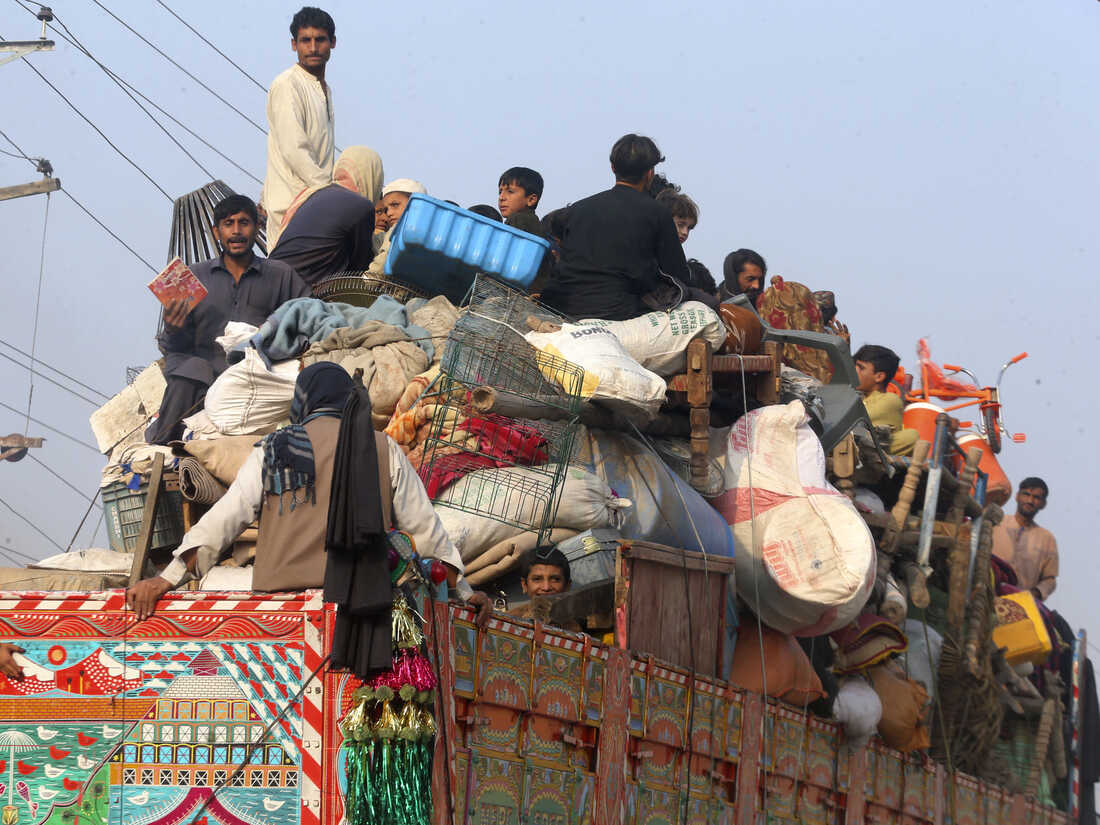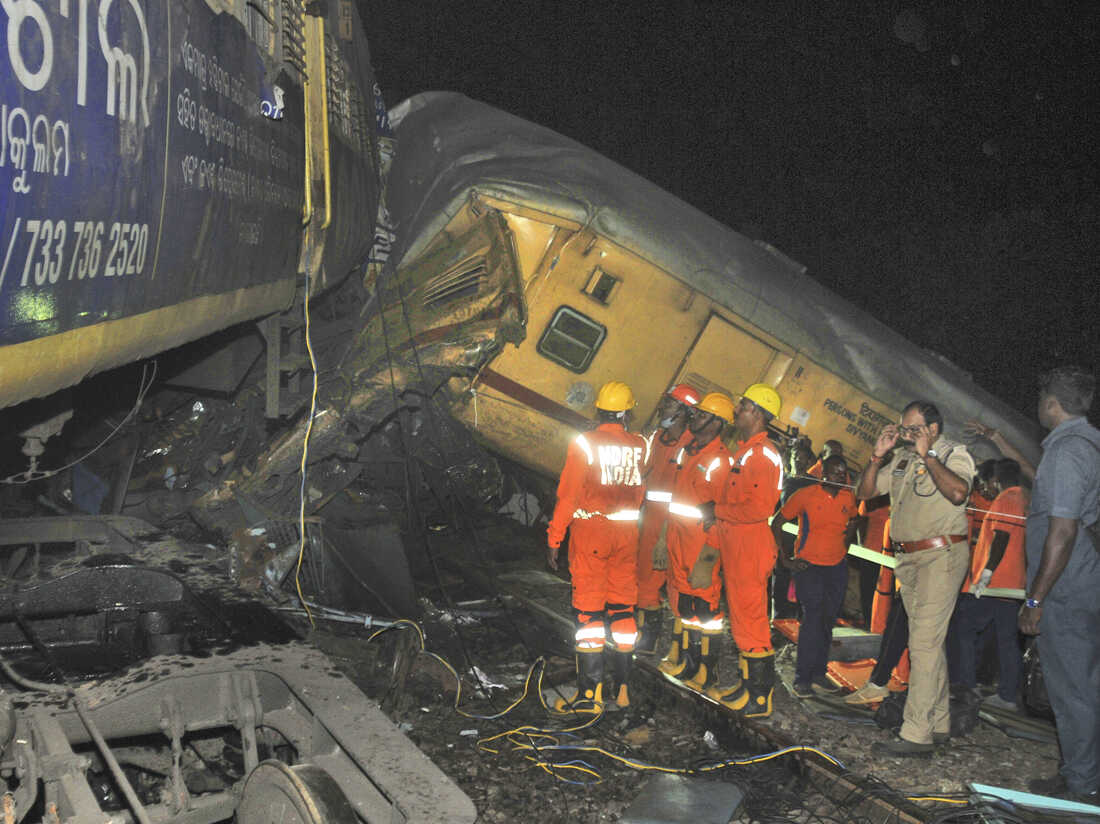My grandma in Wuhan is philosophical about COVID, life and her favorite topic: death
By Laura Gao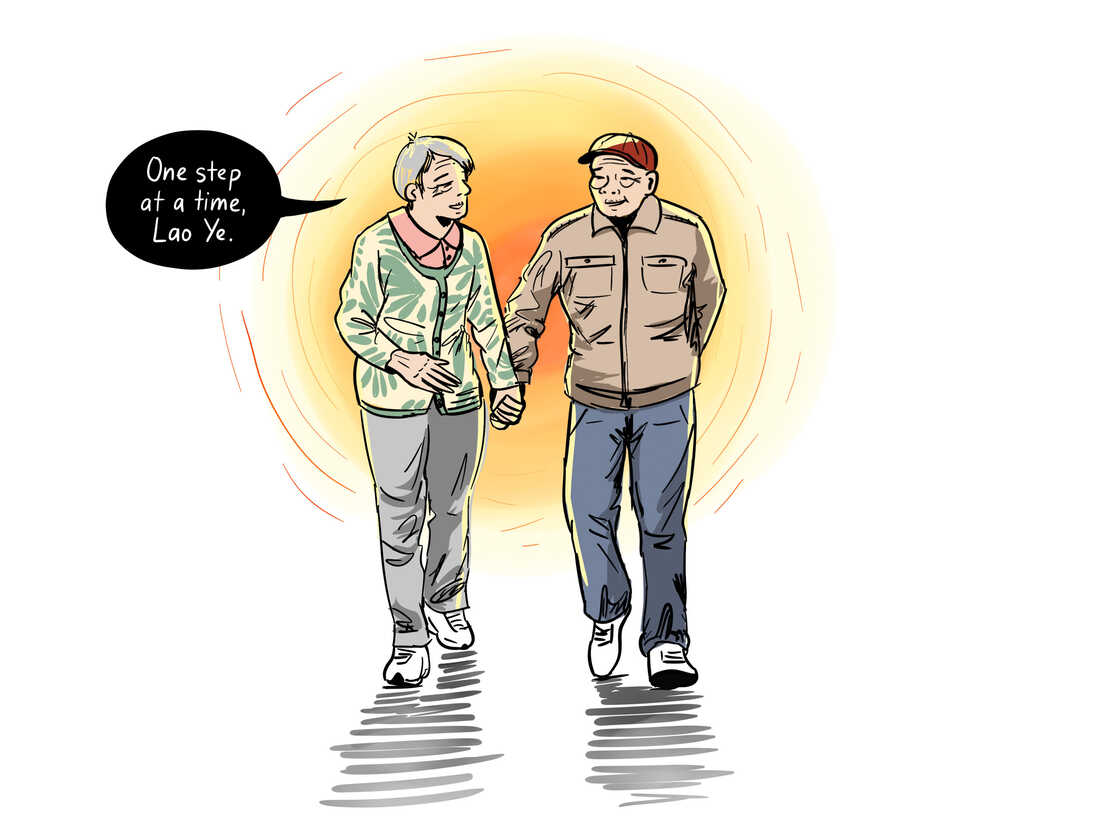
My grandpa Yeye and grandma Nainai. After they both caught COVID last December when China abruptly lifted its restrictions, my grandparents have felt significantly weaker. Their morning walks now consist of more resting than walking. To my grandparents, the virus should've been a death sentence. However, they were still kicking and cooking on my screen on a video call last week. Laura Gao for NPR hide caption
toggle caption Laura Gao for NPRMy grandpa Yeye and grandma Nainai. After they both caught COVID last December when China abruptly lifted its restrictions, my grandparents have felt significantly weaker. Their morning walks now consist of more resting than walking. To my grandparents, the virus should've been a death sentence. However, they were still kicking and cooking on my screen on a video call last week.
Laura Gao for NPR
Over the next week, we'll be looking back at some of our favorite stories to see "whatever happened to ..."
When I call my grandma, Nainai, I hear two voices crooning their love for each other. "我是否也在你心中" Am I In Your Heart by 高安 Gao An belts from my phone before Nainai appears on the screen.
I stutter, "奶奶,怎么样? Nainai, how are you?" trying to hide the fact that her new WeChat ringtone had startled my phone right out of my hands.
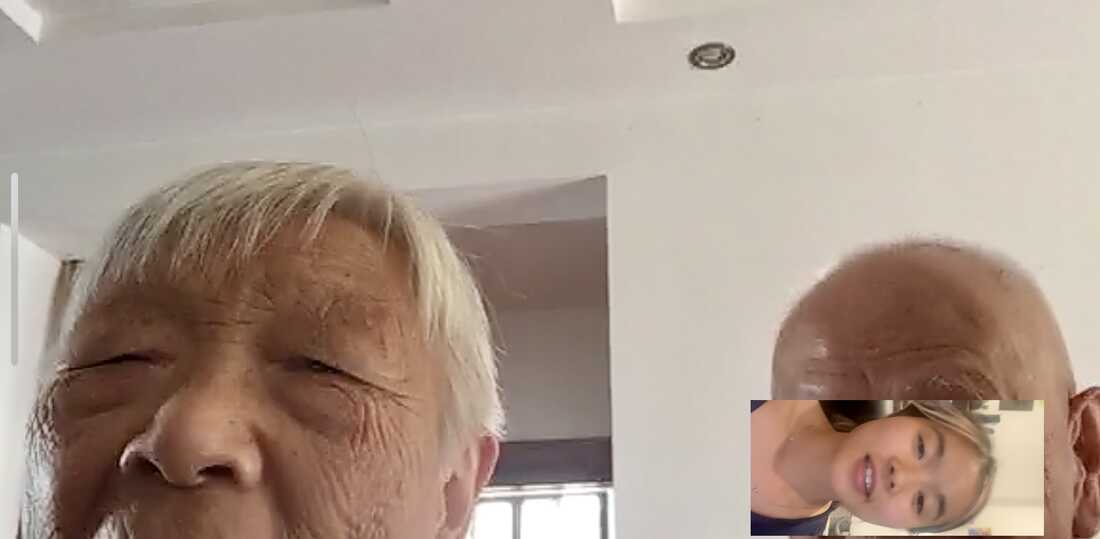
A WeChat video call with my grandparents. Nainai's head takes up half of the screen while my grandpa, Yeye, settles for a few pixels in the corner. As the matriarch, Nainai dominates every space she's in. However, their love is mutual. Laura Gao for NPR hide caption
toggle caption Laura Gao for NPRAs usual, Nainai's head takes up half of the screen while my grandpa, Yeye, settles for a few pixels in the corner. As the matriarch, Nainai dominates every space she's in. However, their love is mutual. A few minutes into our call, Nainai helps Yeye, whose hands can't keep steady, open a container of wild chicken freshly chopped from the butcher. In turn, Yeye prepares her favorite Cantonese-style steamed ginger chicken for lunch. The same dish he learned in his hometown of Jiangxi. And the one that would woo my grandma on their first date.
A typical lunch for my grandparents: Cantonese-style ginger chicken, freshly-made sausage over rice and a shot of baijiu liquor for my grandpa. Laura Gao for NPR hide caption
toggle caption Laura Gao for NPRA typical lunch for my grandparents: Cantonese-style ginger chicken, freshly-made sausage over rice and a shot of baijiu liquor for my grandpa.
Laura Gao for NPRYeye's birthday is next month, coinciding with the Mid-Autumn Festival and, most important, my parents' first visit back to Wuhan in a decade. I'll join them shortly after my book tour ends. My uncle had suggested an outing to the Yangtze River Park to watch the lights show followed by a lavish dinner at Wuhan's hottest restaurant. Nainai would rather have Yeye's home cooking. My grandma is known for her frugality, but this time, she's more concerned about the crowds of people. After she and the rest of my relatives in Wuhan caught COVID last December when China abruptly lifted its restrictions, my grandparents have felt significantly weaker. Following Yeye's second hospitalization, they've retired from their nightly badminton matches. And their morning walks now consist of more resting than walking. My heart dropped when my mom first broke the news to me. The nine days in 2022 that I, a fit long-distance biker in my 20s, spent convulsing in bed with a hellish COVID fever felt like an exorcism. To my grandparents, the virus should've been a death sentence.
However, they're still kicking and cooking on my screen today.
Yeye, the more bubbly of the two, lifts his shot of baijiu and thanks the borders for finally opening up so we could have this rare family reunion. Nainai quickly slaps his arm, scolding him for drinking in front of the kids. Yeye responds by loudly slurping the liquor off-camera as both of them chuckle.
Yeye teaching me (age 3) how to grind sausages in our old Wuhan apartment in 1999. Courtesy of Laura Gao hide caption
toggle caption Courtesy of Laura GaoYeye teaching me (age 3) how to grind sausages in our old Wuhan apartment in 1999.
Courtesy of Laura Gao"You used to gobble these up so quickly after school you'd get a stomach ache!"
She recounts how she and Yeye would trek a mile each way to pick me up from school, journeying along river bridges and highways. I'd trade my backpack and art projects for their Ziploc bag of sausages. After my little brother was born, Yeye would push his stroller alongside us as I pranced from one puddle to the next, Nainai's hand always firmly locked in mine.
After my parents and I left Wuhan for Texas when I was four, my grandparents flew from China every other year to take care of us.
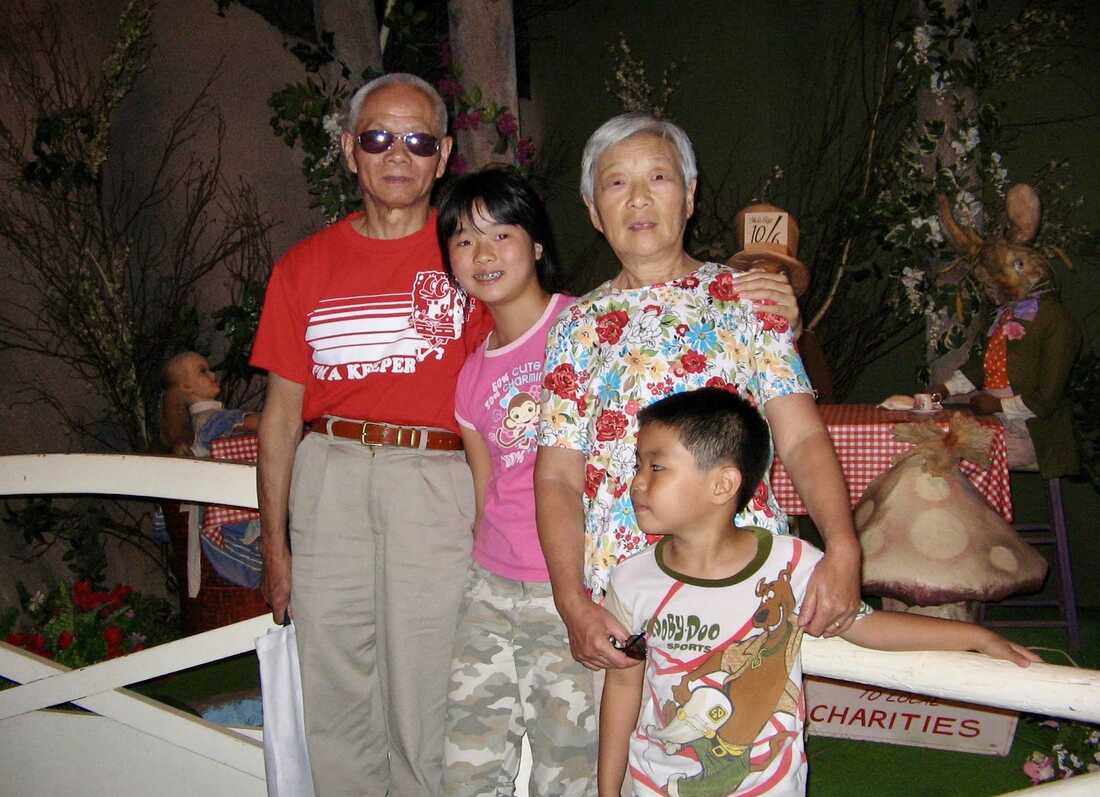
My stylish grandparents with my little brother, Jerry (age 6), and me (age 11) in 2007. Courtesy of Laura Gao hide caption
toggle caption Courtesy of Laura GaoMy stylish grandparents with my little brother, Jerry (age 6), and me (age 11) in 2007.
Courtesy of Laura Gao"I don't know how we handled those 20-hour flights back then. We were so young and spry." Nainai sighs.
"You still are," I always remind them.
Somehow, our call inevitably arrives at their favorite subject: death.
"It's not a big deal. Most of our friends are dead," Nainai exclaims with the same monotony as one would say "we're out of eggs" or "the toilet's clogged." When I try to change the subject, she pauses and looks away.
"It's hard to explain to someone so young. But you're an artist, right? Envision this."

